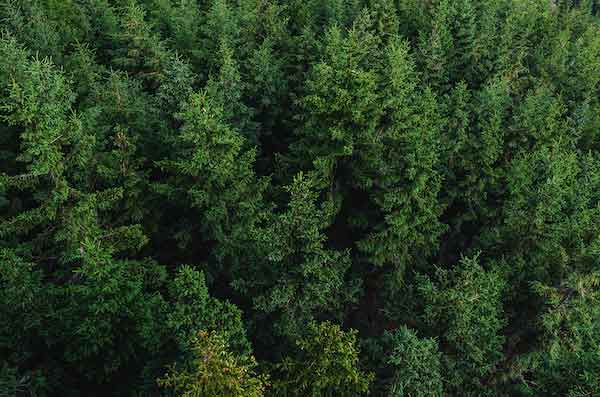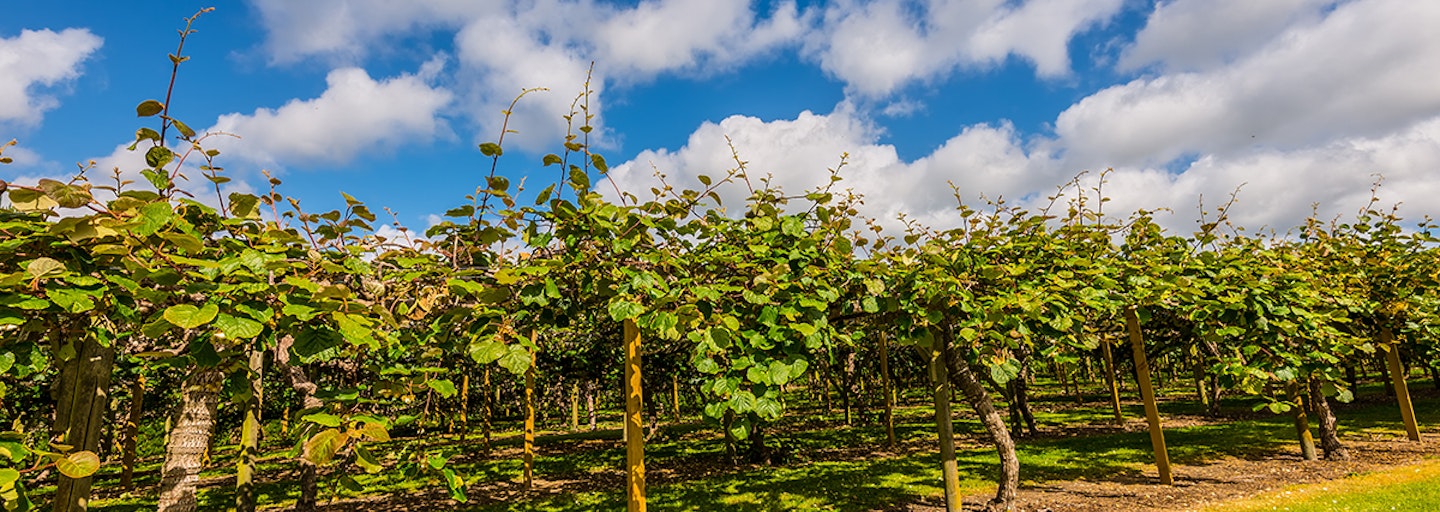Thinking of applying compost to your orchard?
Understand why commercial growers are turning to compost to increase soil and plant health. We answer all your questions about applying compost to your orchard.
The functions of organic matter
Mineral functions of organic matter
Physical functions of organic matter
Biological functions of organic matter
Why use compost
Compost naturally supplies a significant amount of nutrient value to your soil and crops. Application is specific to each orchard but as an example, applying compost at 30-40m3 per hectare will supply most of the nutrients needed for your crop for the season.
Bare in mind that you will not always see immediate results as compost does not release its nutrients all at once. It takes time to work its way into the soil and release.
You’ll get significant value and nutrients but over a longer period of time than a soluble fertiliser which is more instant but does not benefit your soil of crop long term. Applying compost to your orchard is a long-term investment in which we put back into our soil what we have taken.
Learn more about how compost can benefit your growing operation.
Considerations when applying compost
Application of compost
Are you looking for a mulch, nutrition or wanting to build soil? The amount you apply depends on your purpose and what you are wanting to achieve. The range can be anywhere between 25-100m3 per hectare. If you are unsure how much compost you need, you can talk to a soil consultant or one of our team to understand application rates for your orchard. You can learn more about what components your soil needs, how much compost you need, how often and if you should be band or broad spreading. These are all situation specific.
Best time to apply compost
When applying compost to your orchard, it comes down to specifics of your situation and can sometimes come down to practical limitations like crop stage, ability to access and availability of machinery but as a general rule of thumb there is no bad time to apply compost. The good thing about the mineral content of compost is that it won’t be leached, because it’s locked into carbon forms. This means it will be released on demand to the plant roots or microbial activity and you won’t lose it after heavy rain.
How long will it take to break down?
How long compost will take to break down, work its way into your soil and release nutrients depends on the carbon/nitrogen ratio. The higher the carbon to nitrogen ratio the longer that material will take to break down. You can work with a soil consultant to work out the best ratio for your orchard. For example: Carbon 20:1 Will break down slowly over a 12 month period If its a higher carbon content it might take up to 24 months
What are the impacts of herbicides?
Herbicides are necessary to remove the competition from other plants, however, by applying herbicides, which is a natural part of our conventional growing systems for row crops, we are actually taking away the plant life from underneath the vines. By applying compost to your orchard you are replacing some of what you have removed from using herbicides.
Band spreading vs broad spreading
Band spreading (or undervine spreading) acts like a mulch directly applied to your plants roots and has better moisture retention but the release of minerals will be slower. If you broad spread before planting crops then you will have a faster release of nutrients but be aware taht if you broad spread you will be getting microbial activity in the rows as well as under the vines which is sometimes the less desired affect.
Do you turn your compost?
Making compost in bulk involves an intensive process of blending, turning, heating, and cooking to break down the raw materials to be utilised as a great resource in your growing environments.
What reductions can I make in alternative fertilizers.
Compost is a long-term investment and you will see the benefits of applying compost to your orchard over time as nutrients slowly build up in your soil. Although you may not be able to completely eliminate fertiliser to begin with, as you build up organic matter in the soil you may find you can significantly reduce your fertiliser use and maybe eventually get rid of it altogether. With the way prices are going with fertilisers, applying compost to your orcahrd is now a more cost-effective and sustainable investment.
Can we repurpose the waste from our orchard into compost?
Yes, you can, however, producing a bulk amount required to spread through your orchard may be a little tricky and can be hard to get the quality and consistency you need for your orchard. You will also need the right equipment to process your waste into compost. We can supply the wood base for your compost such as bark fines and sawdust to blend with your waste. This is a great way to reduce and repurpose your waste. Please get in touch with our team if you wish to discuss if this could be an option for you.
What is the difference between mulch and compost.
Mulch can be any material that you apply to the surface of your soil to provide a cover. It has many benefits which include but are not limited to moisture retention, weed suppression and temperature moderation.
Compost has gone through a biological process and broken down into plant-available forms that work it’s way into the soil. It provides similar benefits as a mulch but additionally greatly increases microbial activity, promotes root growth and helps to break up hard soils for a better living environment for your plant.
Got more questions?Are there limitations to access & supply of compost?
The natural resources we use to create compost are a renewable resource and we work with many suppliers around New Zealand to ensure a constant supply of compost is readily available to our customers.
We work with forestry services and other waste management services to repurpose wood residues and other waste products which go into our compost.
Our forestry clean up service.Related articles

Follow us
More from Azwood
Connect with us on social media to learn more and be the first to hear our latest industry updates

